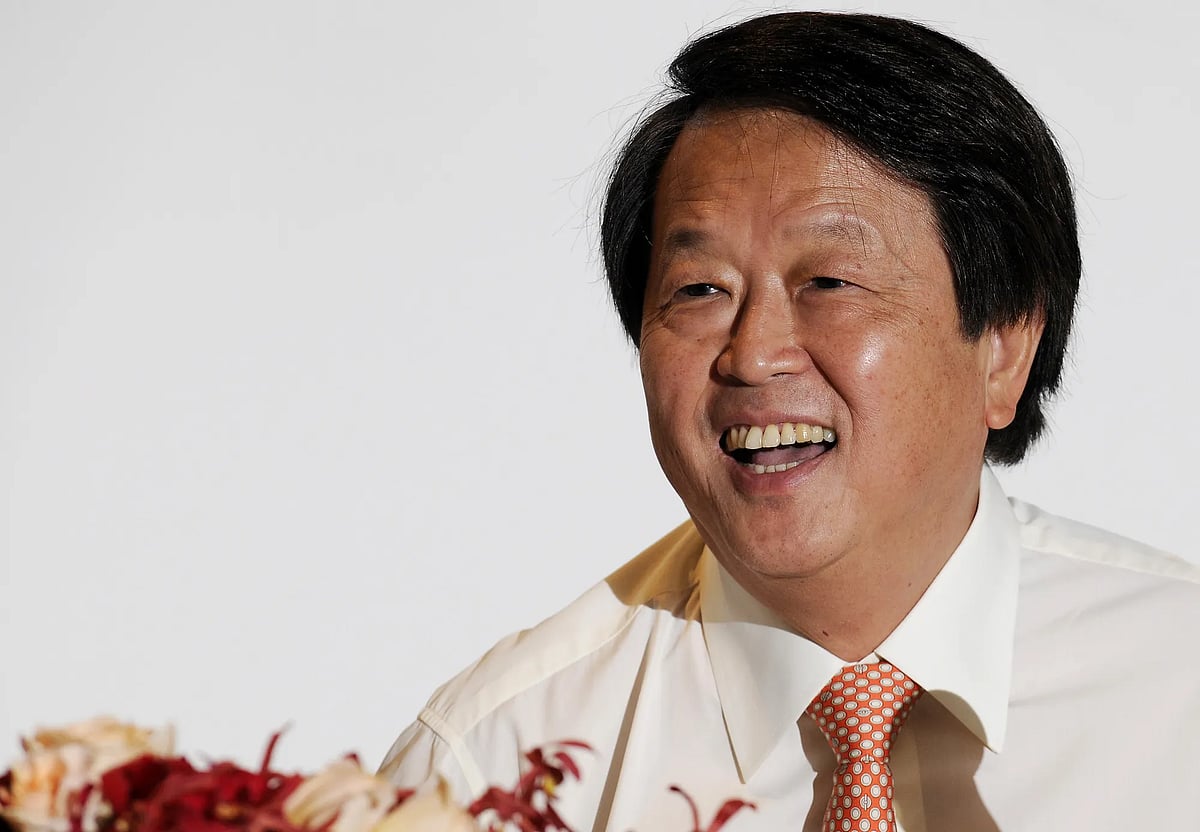Why billionaire Kuok Khoon Hong, 76, is 'palm oil king'
How Singaporean entrepreneur built a $15b empire dominating the global palm oil trade

Kuok Khoon Hong, 76, is the undisputed grandmaster of the global palm oil trade. He is often hailed as the “Palm Oil King.”
He is a known innovator: In 2019, his company Wilmar started using satellites to monitor all of its palm oil suppliers.
Why? To make almost impossible for suppliers to get away with practices deemed unsustainable.
It's just one of the hallmarks of his over five decades spent in the palm oil business.
He co-founded Wilmar International in 1991, now worth S$21 billion ($15.52 billion) with over 300 subsidiaries.
The group has 92,000 people on its payroll.
Forbes estimates Khoon Hong's net worth at $3.8 billion (end-2024), making him a leading Singaporean entrepreneur.
Beyond his success in business, Khoon Hong is also known for his philanthropic contributions.
Success is not just about profit; it’s about making a positive impact.Kuok Khoon Hong, CEO of Wilmar International
Early life, education
Born in 1949 in Mersing, Johor, Malaysia, Kuok Khoon Hong had an early start in leading businesses. He is a relative of Malaysian-Chinese billionaire Robert Kuok, known as the “Sugar King” of Asia (his father was an elder cousin of Robert Kuok).
Educated at Sri Mersing Primary, St Joseph's School and the English College, Johor Bahru, Khoon Hong pursued higher education at McGill University, graduating in 1973 with a Bachelor of Commerce degree.
He then began his career at Kuok Oils and Grains where deepened his knowledge of the commodities trading sector and sharpened his industry leadership skillls.
Wilmar: The $15-billion giant
In 1991, Kuok co-founded Wilmar International with Martua Sitorus, an Indonesian businessman.
Starting with a modest capital, the company initially focused on the Indonesian edible oil market, developing oil palm plantations and refineries in Sumatra.
Under Kuok's leadership, Wilmar expanded its operations into China, India and Africa, establishing itself as a significant player in the edible oil refining industry.
A leader is someone who inspires trust and confidence.Kuok Khoon Hong, CEO of Wilmar International
Agribusiness giant
Today, Wilmar has 45 manufacturing facilities, making it one of the world's leading agribusiness conglomerates and the largest palm oil trader globally, counting food giants among its customers.
As chairman and CEO, Khoon Hong has steered the company towards sustained growth.
In 2022, Wilmar produced around 1.87 million metric tonnes of palm oil, out of the global production of about 76.63 million metric tonnes during that year, as per Statista.
Expansion, growth
Wilmar has grown quietly and rapidly – expanding into oil palm plantations, edible oil refining, and consumer goods. A major 2007 merger with the Kuok Group boosted its global presence.
Today, the Singapore-listed agribusiness giant's activities include:
oil palm cultivation,
oilseed crushing,
edible oils refining,
sugar milling and refining,
specialty fats,
oleochemical, biodiesel and fertiliser manufacturing and
grain processing.
His core strategy: an integrated agribusiness encompassing the entire value chain of agricultural commodity processing, from origination and processing to branding, merchandising and distribution of a wide range of agricultural products.
Visionary
Kuok Khoon Hong continues to lead Wilmar.
His presence in the agribusiness industry, now spanning over five decades, has been pivotal in steering the company towards sustained growth and innovation.
Khoon Hong is focused on one thing: keep Wilmar's competitive edge in the global market, while exploring new business developments.
Challenges
It’s not all bed of roses for Khoon Hong.
While palm oil is an affordable, versatile and a super-yield crop, its expansion has led to deforestation – with tropical rainforests being cut down to make room for plantations, threatening biodiversity and releasing greenhouse gases.
Environmentalists point to the fact that this has led to a higher risk for endangered species, as the destruction of forests means species like orangutans, tigers, and rhinos are losing their homes.
The clearing of forests affects local communities and also contributes to climate change.
What if palm oil vanishes?
Some argue that ditching palm oil entirely could make things worse.
Other oils, like soybean or sunflower, require even more land to produce the same amount of oil. The International Union for Conservation of Nature (IUCN) warns that banning palm oil could shift deforestation to other crops.
So, what’s the future?
A world where palm oil still reigns — but as an eco-friendly, responsibly sourced is a challenge for Khoon Hong and his team.
The hope is that companies, consumers, and governments will continue to work together to usher in a new, greener era for the world’s favourite oil.
Sign up for the Daily Briefing
Get the latest news and updates straight to your inbox
Network Links
GN StoreDownload our app
© Al Nisr Publishing LLC 2026. All rights reserved.